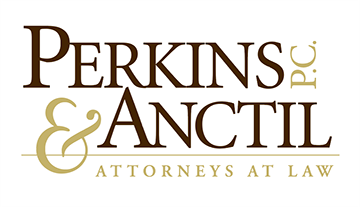Summary by: Jessica E. Molignano, Esq.
Massachusetts’ temporary moratorium on non-essential evictions and foreclosures established by Chapter 65 of the Acts of 2020, an Act Providing for a Moratorium on Evictions and Foreclosures During the COVID-19 Emergency, expired on October 17, 2020. However, since the expiration, many landlords and tenants alike remain unsure of how to maneuver through the evictions process. The purpose of this article is to provide some clarity on this process.
The Massachusetts Moratorium on Evictions and Foreclosures expired, now what?
Since the expiration of the Commonwealth’s moratorium, qualified tenants are still afforded protections from eviction supported by a federal government moratorium established by the Centers for Disease Prevention and Control (CDC). Recently extended until January 31, 2021, the CDC’s Temporary Halt in Residential Evictions to Prevent the Further Spread of COVID-19 moratorium prevents evictions for non-payment of rent for tenants who meet certain income and vulnerability criteria and who submit a written declaration to their landlord. The Order does not prevent landlords from beginning eviction proceedings. Under the federal moratorium, courts will accept filings, process cases and may enter judgments but will not issue an order of execution, which allows a landlord to evict a tenant, until after the expiration of the CDC order.
Although the CDC Order may prevent evictions for non-payment of rent, it does not relieve any individual from the obligation to pay rent or other housing payments, nor does it prevent a landlord from charging or collecting fees, penalties, or interest under the lease or contract as a result of the failure to pay rent. Ultimately, tenants will be required to pay their accrued rent. The CDC Order does not apply to commercial properties, foreclosures on a residential home mortgage, or other eviction cases for specified causes, including engaging in criminal activity while on the premises, threatening the health or safety of other residents, damaging or posing an immediate and significant risk of damage to property, violating applicable building codes or other regulations governing health and safety, or violating any other lease or contractual obligations.
What does this mean? What has changed?
You may be asking yourself, practically speaking, how have the COVID-19, moratoriums on eviction, and the Housing Court’s new Standing Order 6-20 changed the process? The key highlights are noted below:
- Modality: Court business and proceedings have continued to be conducted virtually, to the extent possible. In cases with self-represented litigants, the court will assist with videoconferencing or offer an alternative.
- Timing: Prior to COVID, you could set your watch (or calendar) to a predictable and reliable schedule for processing eviction cases. Since COVID-19, however, you may experience delays, given backlogs and other logistical constraints.
- Logistics: All attorneys must, and self-represented litigants are encouraged to, eFile. Pending summary process cases are handled in a two-tier process starting with a video or telephone conference call with a housing specialist to determine the status of the case, explore available assistance, and attempt mediation. In cases not resolved in mediation, the Clerk’s office will send notice of a trial date no sooner than 14 days after the first-tier event. Defaults and dismissals may be entered at the second-tier event.
- Affidavit Form and Written Declaration: Under the CDC order, for actions including a claim for non-payment of rent, plaintiffs must file an affidavit at every step of the eviction process indicating whether the plaintiff has received a declaration from the tenant under the CDC order. A declaration is a sworn statement by the tenant certifying that the tenant meets the requirements established in the Order to be protected from eviction.
- Outcome: As previously mentioned, the CDC order prohibits evictions for nonpayment of rent. The courts will still accept filings, process cases and may enter judgments but will not issue an order of execution until after the expiration of the CDC order, starting in January 2021. This does not apply to eviction cases for the specific causes listed above. Nor does it apply if the tenants fail to invoke their rights.
Where can I find help?
To support both tenants and landlords facing financial difficulty as a direct result of COVID-19, the state created a program known as the Eviction Diversion Initiative. This list of resources is certainly not all-encompassing but should provide a starting point for both landlord and tenants in need:
- Residential Assistance for Families in Transition (RAFT)
- Emergency Rental and Mortgage Assistance (ERMA)
- The Federal CARES Act provides foreclosure and forbearance protections for owner-occupants of 1-4 family properties with mortgages that are federally or Government Sponsored Enterprise (GSE) backed or funded (FHA, VA, USDA, Fannie Mae, Freddie Mac)
- HomeBASE and Strategic Prevention Initiative (SPI)
- Rental Relief Fund
- COVID Response Tenancy Preservation Program (TPP)
- Massachusetts Rental Voucher Program (MRVP)
- Housing Consumer Education Centers (HCECs)
- Affordable Housing Trust Funds
There are also countless local organizations and agencies and private homeless prevention programs.
Summary
The CDC moratorium, original set to expire on December 31, 2020 has been extended until January 31, 2021 and is still subject to further extension, modification, or recission. Although there is a great deal of uncertainty right now, however, there are numerous resources available for tenants and landlords struggling to pay their bills. Please do not hesitate to contact us if you have any questions about the status of evictions in Massachusetts or any other COVID-19 matters that may be impacting your home or business.
The following links from the CDC provide an overview of the Temporary Halt in Residential Evictions to prevent the Further Spread of COVID-19 Order, as well as answer frequently asked questions regarding the Order and provide a declaration form:
https://www.cdc.gov/coronavirus/2019-ncov/covid-eviction-declaration.html
https://www.cdc.gov/coronavirus/2019-ncov/downloads/eviction-moratoria-order-faqs.pdf
https://www.cdc.gov/coronavirus/2019-ncov/downloads/declaration-form.pdf
